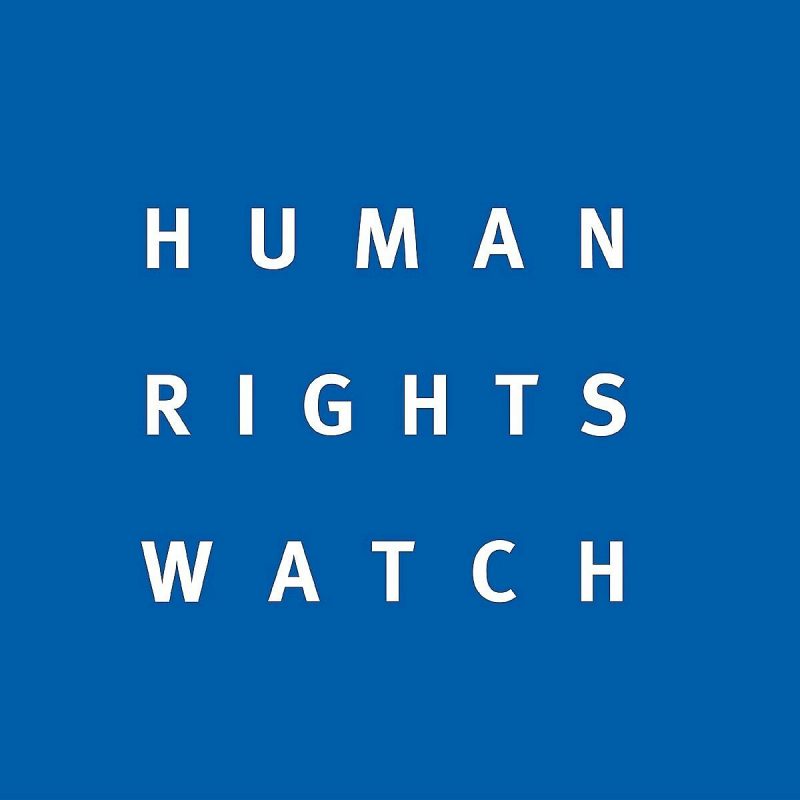Saudi Arabia’s Public Prosecution is seeking the death penalty against five Eastern Province activists, including female human rights activist Israa al-Ghomgham, Human Rights Watch said today. The activists, along with one other person not facing execution, are being tried in the country’s terrorism tribunal on charges solely related to their peaceful activism.
The Public Prosecution, which reports directly to the king, accused the detained activists of several charges that do not resemble recognizable crimes, including “participating in protests in the Qatif region,” “incitement to protest,” “chanting slogans hostile to the regime,” “attempting to inflame public opinion,” “filming protests and publishing on social media,” and “providing moral support to rioters.” It called for their execution based on the Islamic law principle of ta’zir, in which the judge has discretion over the definition of what constitutes a crime and over the sentence. Authorities have held all six activists in pretrial detention and without legal representation for over two years. Their next court date has been scheduled for October 28, 2018.
“Any execution is appalling, but seeking the death penalty for activists like Israa al-Ghomgham, who are not even accused of violent behavior, is monstrous,” said Sarah Leah Whitson, Middle East director at Human Rights Watch. “Every day, the Saudi monarchy’s unrestrained despotism makes it harder for its public relations teams to spin the fairy tale of ‘reform’ to allies and international business.”
Al-Ghomgham is a Shia activist well known for participating in and documenting mass demonstrations in the Eastern Province that began in early 2011, calling for an end to the systematic discrimination that Saudi Shia citizens face in the majority-Sunni country. Authorities arrested al-Ghomgham and her husband in a night raid on their home on December 6, 2015 and have held them in Dammam’s al-Mabahith prison ever since.
Saudi activists told Human Rights Watch that the Public Prosecution’s recent demand makes al-Ghomgham the first female activist to possibly face the death penalty for her human rights-related work, which sets a dangerous precedent for other women activists currently behind bars.
Saudi Arabia’s Specialized Criminal Court (SCC), set up in 2008 to try terrorism cases, has since been increasingly used to prosecute peaceful dissidents. The court is notorious for its violations of fair trial standards and has previously sentenced other Shia activists to death on politically motivated charges. The court sentenced a prominent Shia cleric, Nimr al-Nimr, and seven other men to death for their role in the 2011 Eastern Province demonstrations in 2014 and another 14 people in 2016 for participating in the protests. Saudi authorities executed al-Nimr and at least three other Shia men on January 2, 2016 when they carried out the largest mass execution since 1980, putting 47 men to death.
International standards, including the Arab Charter on Human Rights, ratified by Saudi Arabia, require countries that retain the death penalty to use it only for the “most serious crimes,” and in exceptional circumstances. Human Rights Watch opposes capital punishment in all countries and under all circumstances. Capital punishment is unique in its cruelty and finality, and it is inevitably and universally plagued with arbitrariness, prejudice, and error.
A recent crackdown on women’s rights activists in Saudi Arabia has led to the arrest of at least 13 women under the pretext of maintaining national security. While some have since been released, others remain detained without charge. They are: Loujain al-Hathloul, Aziza al-Yousef, Eman al-Nafjan, Nouf Abdelaziz, Mayaa al-Zahrani, Hatoon al-Fassi, Samar Badawi, Nassema al-Sadah, and Amal al-Harbi. Authorities have accused several of them of serious crimes and local media outlets carried out an unprecedented campaign against them, labeling them “traitors.
“If the Crown Prince is truly serious about reform, he should immediately step in to ensure no activist is unjustly detained for his or her human rights work,” added Whitson.



 العربية
العربية